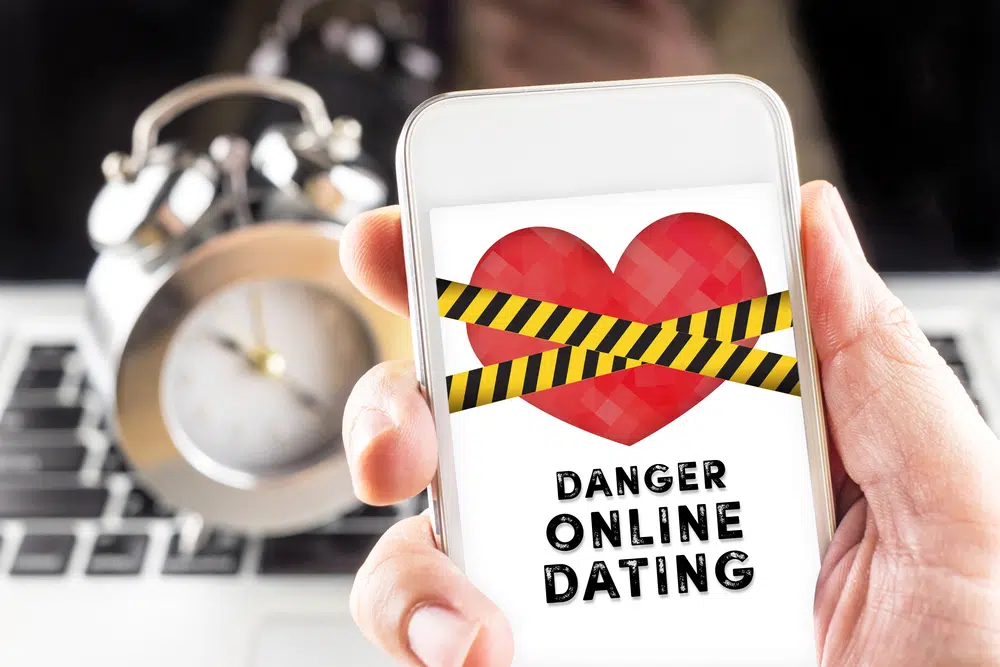COVID-19 Romance Scams Begin to Make the Rounds
Home Help Center COVID-19 Romance Scams Begin to Make the Rounds

While people continue to take protective measures in order to avoid COVID-19, some groups are actively working harder. It’s not just the essential workers, healthcare workers or first responders. Unfortunately, scammers are also putting in overtime to take advantage of the current situation.
Recent reports of quarantine-based scams have included unemployment benefits identity theft, IRS stimulus check scams, and now dating app scams and COVID-19 romance scams. While these have always been a known threat, newsworthy events like the COVID-19 pandemic often lead to an increase in scam activity. Scammers are increasing the amount of romance scams with more people on dating apps due to isolation. Also, scammers are changing their stories to include COVID-19. Fortunately, while the other virus-related scams may be hard to spot due to the fact that they are based on actual current events, avoiding a COVID-19 romance scam might be a little bit easier.
It is important that consumers know the signs:
-
- A plausible reason why the person is reaching out to strangers. Even before the virus, the reason usually had to do with boredom and isolation, which are abundant right now.
- A job or location that prevents them from communicating on a regular basis. Again, before the virus, those jobs often included occupations like off-shore oil rig worker, deep-sea fishing boat captain or deployed soldier. Due to COVID-19, it is just as easy to blame the virus, especially if the person claims to be a hospital worker, medic or another essential employee.
- A sympathetic story. While a lonely, deployed soldier story is prone to tug at the victim’s heartstrings, an EMT, nurse or doctor who just needs someone to talk to as they attempt to process the horrors of frontline medical work could be viewed as a more sympathetic story.
- The request for money. The sympathy mentioned above goes directly into the request for funds. Right now there are probably a lot of people who would help a nurse or medic purchase masks and gloves, and who has not heard the reports of price gouging and scarcity. If the scammer poses as an out-of-work employee, a victim might help a single parent buy groceries for their child.
- The cat-and-mouse game. Romance scams are a vicious cycle of flattery and compliments combined with plausible requests for money. Following through with the money earns the victim even more of the attention they crave. Hesitating or refusing earns them the silent treatment.
In order for consumers to protect themselves from COVID-19 romance scams and other scams, consumers have to be aware of the threat and spot the telltale signs. Romance scams rely on a formulaic model, namely an individual who reaches out on social media, via text message or some other electronic method. They begin a lengthy, personal conversation, one that contains an extremely high, frequent amount of discussion. Within days, they begin making statements such as, “I’ve never felt this way about anyone,” or “I know this is sudden, but I can really see us having a future together.”
Within a short period of “grooming” the victim with promises of visits and even marriage, the story crops up. One example could be a story about a terrible incident that has occurred and the scammer even has the funds to fix it, but they cannot access their money in time to fix the issue. The scammer may ask the victim to pay the money with the promise that they will be paid back immediately. From there, more requests for money could follow, even as the scammer continues to string along victims with promises of long-term relationships.
Remember, there is no plausible excuse why someone would need to reach out for money from someone they have not met in person. People should protect themselves from these and other scams by learning to spot the warning signs and distancing themselves if any red flags appear. If anyone believes they are a victim of a COVID-19 romance scam, they can contact the Identity Theft Resource Center to live chat with an expert advisor. If they do not have internet access, they can call toll-free at 888.400.5530.
How much information are you putting out there? It’s probably too much. To help you stop sharing Too Much Information, sign up for the In the Loop.
Get ID Theft News
Stay informed with alerts, newsletters, and notifications from the Identity Theft Resource Center

